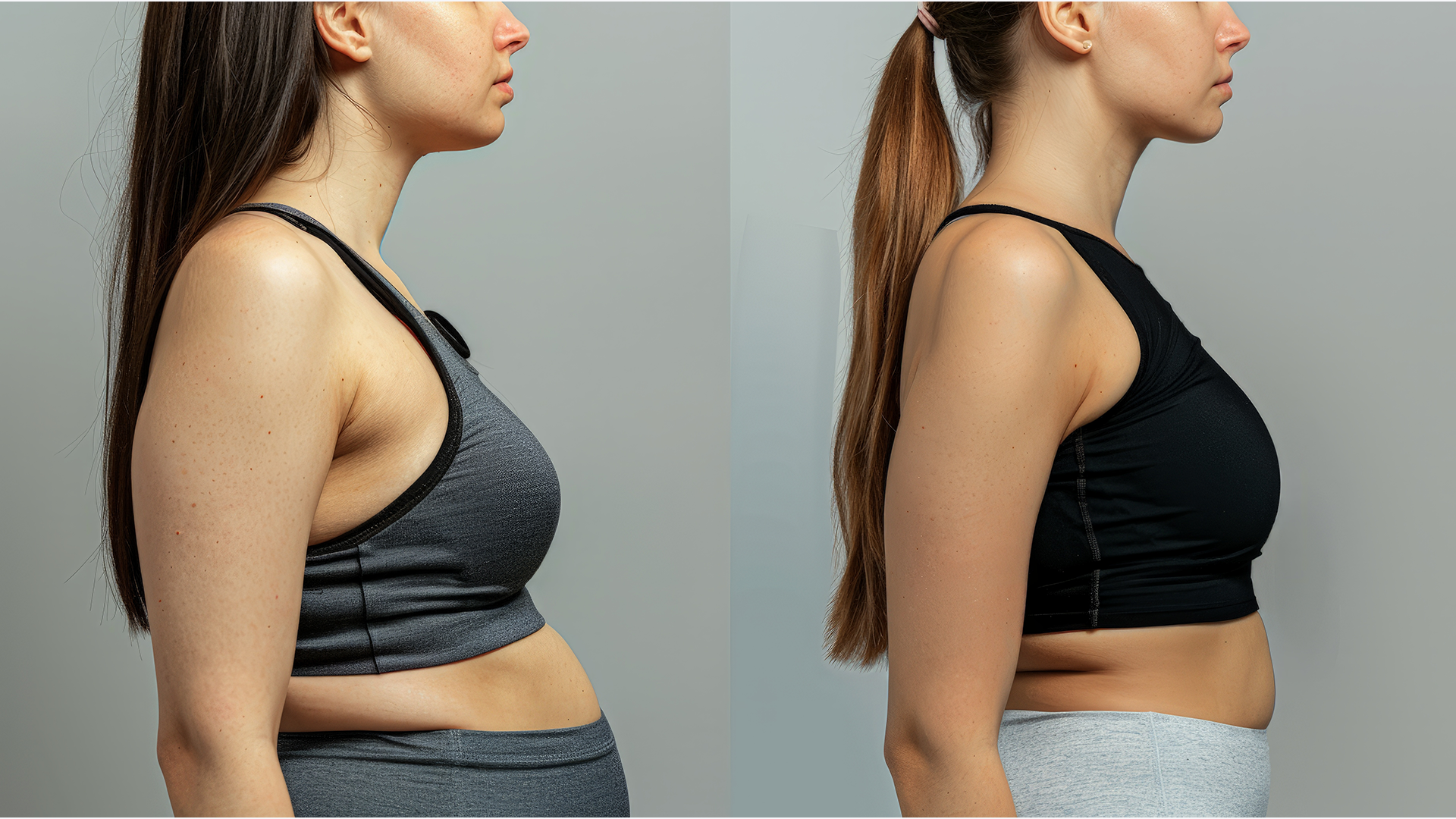Weight gain is a common problem as people age. Unfortunately, it isn’t as easy as it was when you were 20 to drop the extra pounds when you’re older. There are several reasons for this.
This isn’t to say that you can’t lose weight after you’ve reached a certain age. Instead, you need to turn to proven tactics and tips you can use at any age to drop pounds and feel your best.
5 reasons why weight loss is complicated as you age
Maintaining a healthy weight as you get older is hard for most people, even those who have been slim their entire lives. If you’re experiencing weight gain, there are several reasons why you might be having the same problems as others your age.
1. You’ll go through hormonal changes
Your body’s natural hormone balance changes as you age, and will change differently depending on whether you’re a man or woman.
If you’re a man, testosterone keeps you slim. Testosterone not only fuels muscle growth, making it easier to get more defined when you’re younger, but it also maintains a high metabolism, and maintains insulin sensitivity, which is essential to prevent excess fat storage. When testosterone levels drop, the body adapts by storing more fat, which causes most men to gain fat, especially around their mid-section, as they age.
If you’re a woman, weight gain is due to a decrease in both estrogen and progesterone. However, progesterone levels decrease more quickly than estrogen levels, which causes fat tissue to form more quickly, and sometimes more uncontrollably, than it did before.
2. You’re going to lose muscle
A general loss of muscle mass is one of the greatest contributors to weight gain as you age. Your muscle tissue burns glucose, and uses more calories than any other tissue in the body. As you lose muscle mass, you’re going to gain weight because your body will store the excess glucose as fat.
The weight gain from natural muscle loss is exacerbated if you eat a carbohydrate-heavy diet, because there will be more glucose readily available for storage as fat.
3. Your metabolism is going to slow down
Your metabolism naturally slows with age. In fact, studies suggest that your metabolic rate decreases almost linearly with age. This is related to a decrease in muscle mass, as well as reduced energy consumption as a result of said decrease.
Glucose tolerance also decreases with age, which can easily add excess fat to the body.
4. You’re going to be under more stress
Stress inevitably increases as you age. Your career, family, and other common stressors can add up, and quickly! Stress causes the body to release cortisol. Unfortunately, cortisol can cause the body to store additional fat because it boosts hunger, especially over long periods of time.
Cortisol can turn overeating into a habit. Typically, higher levels of cortisol are also associated with higher insulin levels, worsening cravings. Eating becomes an escape for many stressed adults, and will only exacerbate the natural weight gain you’ll experience as you age.
5. You’re going to move less
Whether due to aches and pains, less free time, or another reason entirely, physical activity levels usually drop with age. And if you’re moving less, you’re going to burn fewer calories and struggle to keep the pounds off.
5 solutions when weight loss seems impossible as you age
There are many factors that can cause you to gain weight as you age. However, this doesn’t mean that you won’t be able to lose weight with the right strategies.
1. Switch up your workout
Many older people walk or hop onto a cardio machine when they work out. In addition to heart-healthy cardio, you should focus on resistance training to counteract the loss of muscle mass. This doesn’t mean you have to use weights. You may want to try out some bodyweight workouts, like squats, to build muscle.
2. Eat more protein
Protein will help you build muscle, like resistance training will, and will stabilize your metabolism, too! Protein repairs damage to muscles and other bodily structures. This is primarily due to amino acids.
3. Don't keep cutting back on calories
Some research suggests that people get hungrier as they get older. While this may or may not be true, cutting back on calories doesn’t mean staying slim. In fact, you may put on more weight if you cut calories too dramatically. Or, worse, your body will begin to break down more muscle for energy, which will also slow down your metabolism.
Similarly, it’s important to eat regular meals. One of the easiest mistakes to make is to eat too little at the beginning of the day, and too much at night. This can also complicate your weight loss as you age.
4. Get enough sleep
It’s easy to overeat if you’re tired. In fact, sleep deprivation can also influence hormones that regulate hunger, meaning that even if you aren’t actually hungry, you’ll eat more.
If you sleep for less than five hours each night, ghrelin and leptin levels will rise, stimulating you to eat more. If you sleep for between six and eight hours, this effect is negated, and your body is better able to regulate your hormones.
5. Drink more water
Hydration is important, especially if you’re trying to lose weight. When you’re hydrated, you burn more calories. And if you drink a lot of water, you’ll feel full, helping you eat less.
There’s no secret to weight loss as you age – just tips to make it simpler
While it may seem difficult – albeit impossible at times – to lose weight, it doesn’t have to be. There are going to be physical changes that complicate your weight loss. However, with the right tips at hand and a comprehensive weight loss supplement like PhenQ, you can burn fat and maintain your weight loss.




